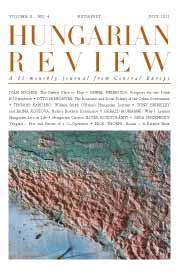The Economic and Social Policies of the Orbán Government – A View from Outside
The Economic and Social Policies of the Orbán Government – A View from Outside
Author(s): Otto HieronymiSubject(s): Politics / Political Sciences
Published by: BL Nonprofit Kft
Summary/Abstract: The principal conclusions of this article can be summed up in the following points: 1. There is no doubt that Hungary has fallen back. The responsibility to a large extent belongs to the erratic policies of the left-liberal coalition that governed for three out of the five full parliamentary cycles since the election of the Antall Government in 1990. 2. The program of the Orbán Government represents a new approach. The urgent need for bold innovation is due not only to the consequences of Hungary’s crisis and the electoral mandate for change, but to the profound worldwide crisis of the dominant economic, social and financial theories. Without reforming both theories and policies, all the positive results of a global, open and liberal economy might be jeopardized. 3. The Orbán Government is not alone in struggling with complex policy challenges and conflicting policy priorities. Virtually all governments, including the American, the German, the French and the British, are navigating in uncharted waters. It is a time of trial and error and a time to avoid excesses and try to reconcile short-term and long-term goals and possibilities. 4. From both a Hungarian and a European and Western perspective, the programme of the Orbán Government appears to be neither “right-wing” nor “left-wing”, neither nationalist nor inward-looking, but “radically centrist or middle-of-the-road”. 5. Critical analysis and debate are the life-blood of democracy and a condition of success. But given the monumental dimensions of their task and their commitment to freedom and the common good, Orbán and his government deserve the benefit of the doubt about the validity of their policies not only within the country, but also from their EU and other Western community partners, as well as the “technocrats” of the international agencies. The rest of this article is divided into five parts addressing: the main objectives of the programme of the Orbán Government, the legacy of the previous coalition, Hungary as a member of the EU and the Western community of democracies, the crisis of economic theories and the call for a new “social contract”, and for reaffirmation of the goal of the social market economy by the EU and its member countries.
Journal: Hungarian Review
- Issue Year: II/2011
- Issue No: 04
- Page Range: 36-50
- Page Count: 15
- Language: English

